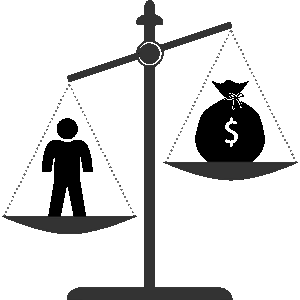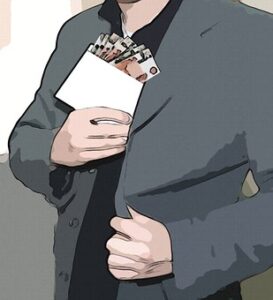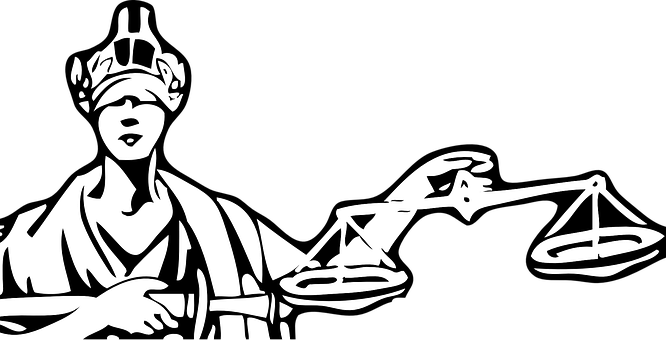Makarfi v. Poroye [2017] 10 NWLR (Pt. 1574) 419 at 440-441, paras. G-D, per Saulawa, JCA:
“…Instructively, implicit in the judicial oath subscribed to by all of us judicial officers, fundamentally requires a total commitment to the rule of law, to the dispensation of justice according to law, without fear and favour, affection or ill-will, honestly, faithfully, and according to the Constitution and the laws made pursuant thereto. Such judicial oath equally demands that a judicial officer should not allow himself to be influenced by any extraneous or subterranean consideration whatsoever. As aptly postulated by the Hon. Justice M.M.A. Akanbi, (PCA Emeritus): “Let me say that while a Judge with little or no adequate knowledge of law, may be considered a nuisance, and his lack of understanding and appreciation of the law may constitute an obstacle in the path of justice, yet he is still more tolerable than a CORRUPT JUDGE. For a corrupt Judge is not only a dangerous obstacle, he is an anathema and a DISGRACE to the profession or the institution which he does not deserve to belong.” See M.M.A. Akanbi (PCA Emeritus): The Judiciary and the Challenges of Justice, 1996 at 36.”

Blogger’s Note:
What inspired the above notable pronouncement was the decision of Abang j., of the Federal High Court, Abuja Division, which was successfully appealed against by the Appellants. In the case, the 1st-9th Respondents had dragged Independent National Electoral Commission (INEC) and Peoples Democratic Party (PDP) (10th and 11th Respondents respectively) to the Federal High Court vide an Originating Summons seeking, among other reliefs, to be recognized by INEC exclusively as the authentic States Executive leaders of the PDP in the South West Zone of Nigeria (that is, Ekiti, Ondo, Ogun, Osun, Oyo and Lagos States) as against the faction of the party led by the Appellants. Although the 1st-9th Respondents made several references to the Appellants in their supporting Affidavit to the Summons, they however failed to join the Appellants to the suit.
The trial Court nevertheless, granted all the reliefs sought by the 1st-9th Respondents on 29/6/2016 and made orders affecting the Appellants.
On learning about the Judgment on 20/9/2016, the Appellants sought and were granted leave to appeal the Judgment (as parties interested) on the ground that their right to fair hearing was breached in that they ought to have been joined in the suit. The Court of Appeal unanimously allowed the appeal, reaffirming the trite principles of fair hearing.
Mbaba, JCA held that “a little carefulness and reflection, on the part of the lower court, would have suggested to it the need for it to order the 1st-9th Respondents (plaintiffs in the suit) to put the said person(s) who had claimed rival right to the leadership of the party, as National Caretaker Committee of the party, so that the court could also hear them, before making the offensive orders on 29/06/2016.” His lordship concluded that “the decision of the learned lower court on appeal, and the contention of respondents’ counsel, in defence of same, in my view, are absolutely indefensible and made in bad faith.” See pages 434-435 of the report.
Saulawa, JCA on his part, described the Judgment of Abang J., (which, according to the learned Justice of the Court of Appeal was unfortunately delivered on his (Saulawa, JCA’s) birthday, i.e., 29th June, 2016) as “a fraud, diabolical contraption and perverse.” See page 440 of the report.
 The pronouncements of the Court of Appeal tend to suggest that corruption, and not necessarily lack of adequate knowledge of the law, probably inspired the decision of the learned trial Judge in the case.
The pronouncements of the Court of Appeal tend to suggest that corruption, and not necessarily lack of adequate knowledge of the law, probably inspired the decision of the learned trial Judge in the case.
Although, recently, the learned Judge was cleared by the National Judicial Council of any wrongdoing in relation to the petition previously filed against him by the Makarfi-led faction of the PDP, the Judge’s profile appear to be in crises in view of some unpalatable rulings and Judgments emanating from his lordship for which he had been previously rebuked by the appellate court.
Perhaps it is worthy to mention that the issue of rivalry in the leadership of the PDP has now been legally resolved owing to the recent decision of the Supreme Court.
Read full Judgment.














